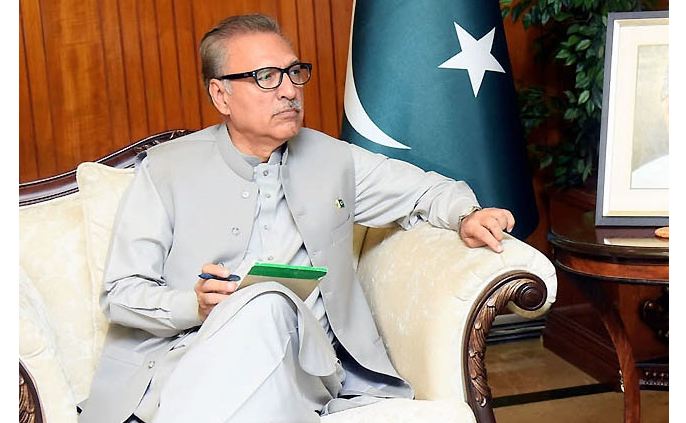Special Correspondent / DNA
ISLAMABAD, President Arif Alvi on Wednesday, in a letter to the Chief Election Commissioner (CEC), asked an immediate announcement of the date of the elections.
“The president has asked the Election Commission of Pakistan (ECP) to immediately announce the date of elections for provincial assemblies as per Elections Act, 2017,” the letter read, as shared by the media wing of the President’s House.
In his letter, the President referred to the dissolution of the provincial assemblies of Punjab and Khyber Pakhtunkhwa and said that the election of an assembly is to be held within 90 days of the dissolution as provided by Article 224(2) of the Constitution which emphasized the holding of election in 90 days.
He added that the conduct and holding of elections was the primary and essential duty of the ECP as per PART VIII of the Constitution, particularly Article 218 (3) which assigned the duty to the ECP to ensure the holding of fair and free elections.
He conveyed that it was ultimately the Commission, which if it failed to discharge its functions and duties, was to be held responsible and answerable for the violation of the Constitution of the country.
Referring to Article 42 and Third Schedule, the President stressed that he was under oath ‘to preserve, protect and defend the Constitution being the Head of State.
He quoted specific text of Article 214 and Third Schedule of the Constitution for CEC and the members of the ECP about their fundamental duty as per their Oath that says ‘I will discharge my duties……faithfully in accordance with the Constitution of Islamic Republic of Pakistan’ and the Elections Act, 2017 to avoid serious consequences of breach/violation of the Constitution/law and announce election schedule of the two dissolved Assemblies forthwith.
Highlighting the significance of the Preamble/Objectives Resolution, the president said that the Preamble stated in unambiguous words that ‘the State shall exercise its power and authority through the chosen representatives of the people’.
“Such is the unflinching resolve and commitment by the forefathers of the Nation who drafted the Objectives Resolution duly made part of the Constitution (Article 2A).
Thus, there remains no obscurity about the democratic principles and values that are to be adhered to, observed, and followed,” he further wrote.
The president emphasized that the oldest democracies had never delayed elections even during wars.
In this regard, he quoted the examples of the United States, which held elections despite being at war with Great Britain in 1812 under President James Madison. He further stated that in 1864 during the American Civil War, top advisors of the-then President Abraham Lincoln wanted to postpone elections due to the civil war but he disagreed with them, and even though he thought that he was going to lose the elections, he never really contemplated suspending the elections.
He said that the Commission itself had already taken an appropriate constitutional step and had announced the holding of bye-elections of National Assembly seats of different constituencies.
The president concluded that he was of the firm view that there were no such circumstances in the country that provided any justification for delaying or postponing the elections.
He stressed that recent world history had shown that the postponement of constitutionally-mandated elections had caused serious long-term setbacks to democracy.

















